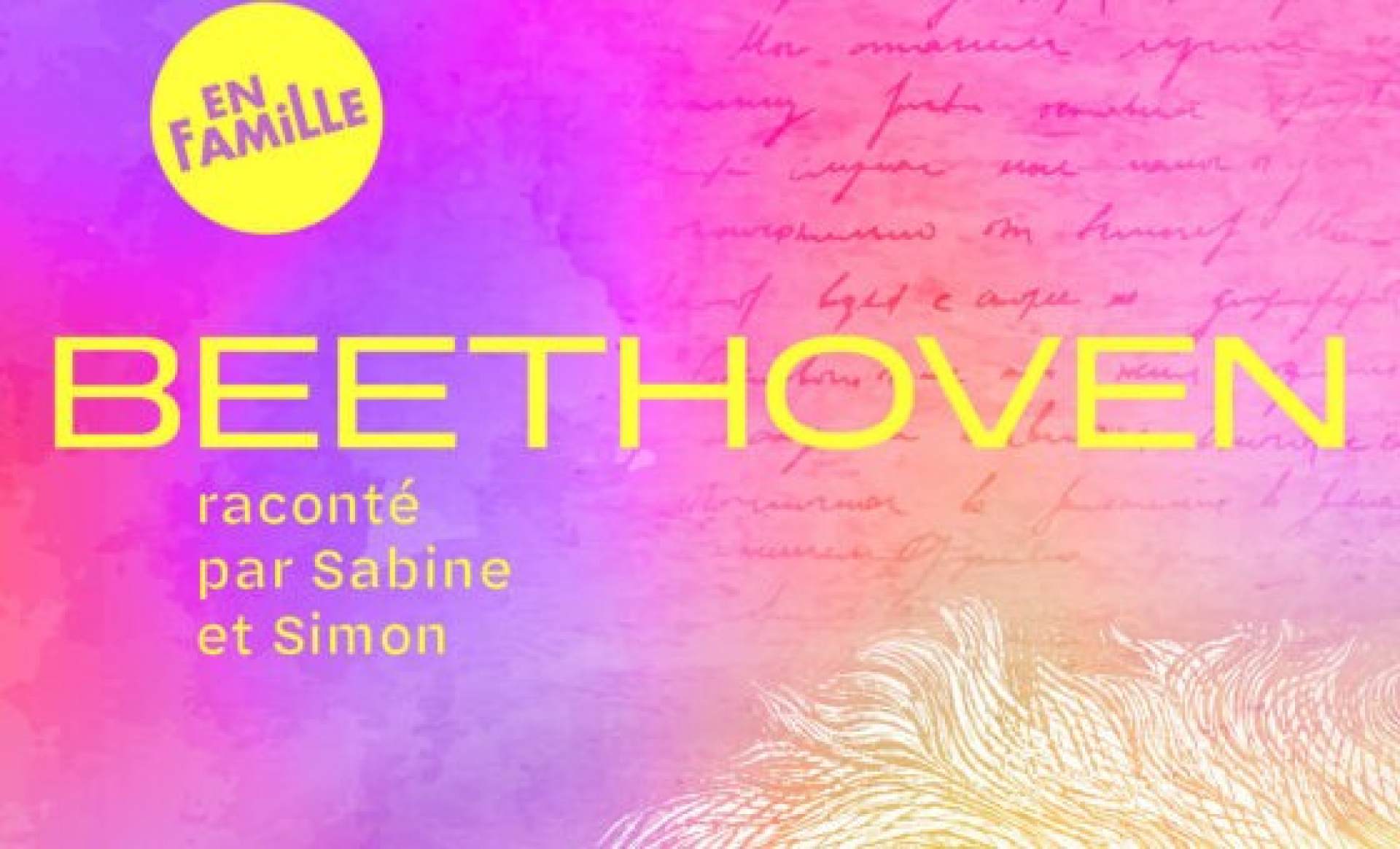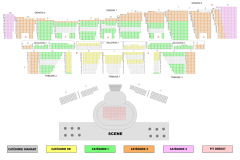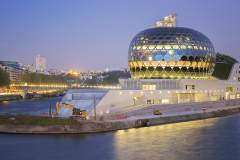Beethoven told by Sabine and Simon
March 2025 | ||||||
|---|---|---|---|---|---|---|
Mo | Tu | We | Th | Fr | Sa | Su |
Because there is no age limit for enjoying music, discover a family program for young and old music lovers. Classique du Dimanche is a one-hour event designed to marvel together as a family: educational or participatory concerts, film concerts, unique projects… At the Auditorium of La Seine Musicale, classical music takes various forms and is presented at a child’s level.
Ludwig van Beethoven is one of the most well-known German composers. Born at the end of the 18th century—he is a bit younger than Mozart—he left a significant mark on the history of music with the dramatic and evocative power of his works. His “pom, pom, pom, pom… pom, pom, pom, pooooom” is perhaps the most popular theme in classical music!
He is often seen as a tormented artist. It must be noted that Beethoven began to suffer from deafness before he turned 30. A tragic fate for a musician. To keep this terrible truth from leaking out, Beethoven avoided public appearances. This voluntary isolation may have been interpreted as disdain for his peers. But that is not the case; he overcame this terrible ordeal through his creativity.
Beethoven is full of ideas; he is a free spirit with a rebellious character who is not satisfied with his situation and dreams of a greater destiny. Coming from a family of musicians, his talent was quickly recognized, and Beethoven gained the protection of an important man. Being a musician was then considered just another profession, and one had to compose on demand for the pleasure and entertainment of aristocrats.
Beethoven transformed the nightmare of his deafness into strength: his creative boldness was further asserted. Imagining unheard-of things in his mind, he composed incredible scores!
If Beethoven's music sticks easily in our memory, it is due to its visual power and genius for suspense. Listening to his music sometimes gives the impression of a landscape unfolding or even a storm breaking out. With sounds, Beethoven is capable of creating soundscapes. Using the instruments of the orchestra and thanks to rhythms and melodies, he evokes images of nature and the elements.
Pianist Simon and explorer Sabine take you on this interactive journey to discover the most inspiring composers of the classical repertoire as a family!
For ages 7 and up.
Program and cast
Sabine Quindou, writing and directing
Simon Zaoui, piano
La Seine Musicale
La Seine Musicale is a music and performing arts center located on Île Seguin an island on the Seine river between Boulogne-Billancourt and Sèvres, in the western suburbs of Paris, France.
Adress: La Seine Musicale, Île Seguin, 92100 Boulogne-Billancourt, France
Auditorium Patrick Devedjian
Nestled like a gem in a case of glass and wood, the Auditorium Patrick Devedjian is the centerpiece of our building. It can accommodate up to 1,150 spectators and is dedicated to acoustic music, featuring the greatest classical ensembles and musicians, foremost among them the resident orchestra: Insula orchestra.
Its appearance is open to interpretation: a bird's nest, a giant liner, "the ball"...
From the outside, its glass facade is protected and powered by a gigantic array of solar panels that moves in synchronization with the sun, overlooking the concrete liner.
From the inside, the 1,150-seat hall awakens our senses. Dedicated to classical music, jazz, and world music concerts, its light blonde wooden ceiling, cardboard tubes, and paper reveal all the secrets of the excellent acoustics of this stage.
Its Acoustics
Studied by the Nagata and Jean-Paul Lamoureux firm to ensure the best possible sound reproduction for the audience. All precautions have been taken to guarantee exceptional acoustics with the precision of a musical instrument.
Its Design
Modular, its vineyard-style arrangement creates a genuine proximity with the audience surrounding the artists. The interplay of lights, the beauty of materials (wood, mosaics, glass), and the 360° panorama are all designed to match the pleasure of the eyes with that of the ears.
Its design aims to create a sense of visual and acoustic intimacy shared between the audience and the musicians. The atmosphere of the hall is warm, with curved wooden walls and ceiling contributing to the hall’s unique sound identity. Access to the hall is provided on three levels by large suspended walkways offering panoramic views of the surrounding landscape. These are connected by large staircases forming a continuous promenade around the hall.

 EN
EN DE
DE IT
IT FR
FR ES
ES RU
RU JP
JP RO
RO
 Seating plan
Seating plan 